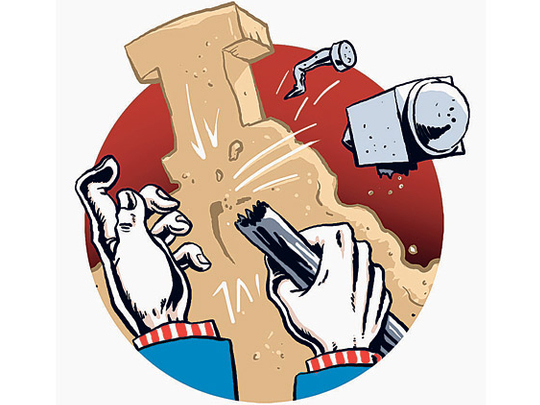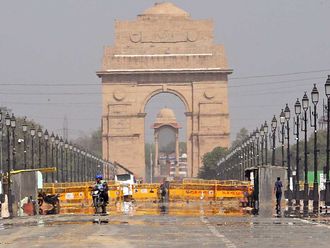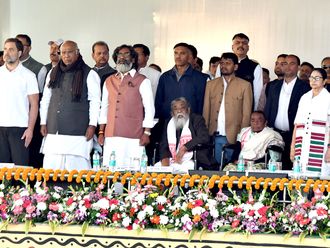
After months of a lack of focus, the Obama administration seems to have finally decided to enter the Iraqi political fray in the post-election period. Vice-President Joe Biden has been sent to Baghdad to exhort Iraqi leaders to end the paralysis that has stalled the formation of a government since the parliamentary elections four months ago. After three days of talks with Sunni, Shiite and Iraqi Kurd leaders, Biden does not seem to have been successful in his mission. There is no sign that the deadlocked coalitions that won seats in the March elections are any closer to forming a government.
While in Baghdad, however, Biden tried to play down the post-election political complications: "This is not a lot different from any other [country] … It took the Dutch four months [to form a government]," he said. For an administration that hopes to withdraw most of its combat troops by the end of next month, trying to portray the divisions in Iraq as a mere political wrangling is understandable. But the truth is that after seven years of invasion and bloody civil conflict, Iraq has not overcome its ethnic and sectarian divisions.
Indeed, the worst may be behind us in Iraq, but the wounds of the past have not healed yet. Iraqis are still very divided and distrustful of each other. The struggle for power and wealth that engulfed the country following the US invasion is just one aspect of a failed national process to establish a modern state. Iraq is paying the price of decades of bad rule.
Hidden problems
Alas, Iraq is not the exception to the rule in the Arab world; what applies to Iraq applies to every other Arab country that has been ruled by the same policies. The only difference is that a savage external force has intervened in the case of Iraq to uncover the true nature of the relationship between state and society.
For the past 60 years, since the dawn of Arab independence, most Arab governments have failed to develop any successful form of national identity. Tribal, sectarian and indeed familial ties have provided prestige at times of peace and refuge and protection at times of war and conflict.
The ‘progressive' Arab regimes, which came to power in the 1950s and 1960s, claimed that they had a clear vision to modernise the state and society and develop a national identity. Traditional loyalties were to be replaced by a modern one — assumed to be citizenship. All this turned out to be mere rhetoric and a pathetic attempt to provide legitimacy for the ruling elite. Traditional loyalties were strengthened and most of the social diseases that accompanied them were in fact preserved and transferred to the state machinery. High positions in the state hierarchy were given to relatives and tribe members — regardless of skills, qualifications or fitness to fill the posts.
The modernisation vision established regimes that owe their durability solely to repression and a narrow sectarian or tribal base of support. Within this context, the Arab state was no longer seen by the majority of the populace as a defender of order and property, but a creator of wealth, power and prestige for the ruling class. As a consequence of this understanding of the role of the state, national loyalties failed to exist. Being a good citizen was measured on the basis of one's love and trust in the ‘great leader', his family, tribe and, indeed, his ‘infallible leadership'. The slightest objection was interpreted as treason and was punished severely.
The heavy reliance on coercion exposed the weakness of Arab regimes in the sphere of political socialisation and their failure to create identities beyond the traditional ones. This policy succeeded only in alienating the social groups traditionally outside the dominant ruling elite. The fragility of the superficial national identity surfaces from time to time, but becomes clearer only when the power of the state declines to the level where it becomes no longer capable of performing its security functions. Hence, when the former Iraqi regime was removed, all the diseases of Iraqi society floated to the surface. Iraq emerged as a collection of tribes, sects and ethnic groups that have little in common. Instability followed and the absence of a social contract between rulers and the ruled brought the country close to civil war.
Until the brutal US intervention in Iraq, most Arab regimes claimed that they had established modern states. In the light of what happened in Iraq we may need to take this claim with a grain of salt.
Dr Marwan Al Kabalan is a member of the Centre for Strategic Studies and Research at Damascus University in Syria.








